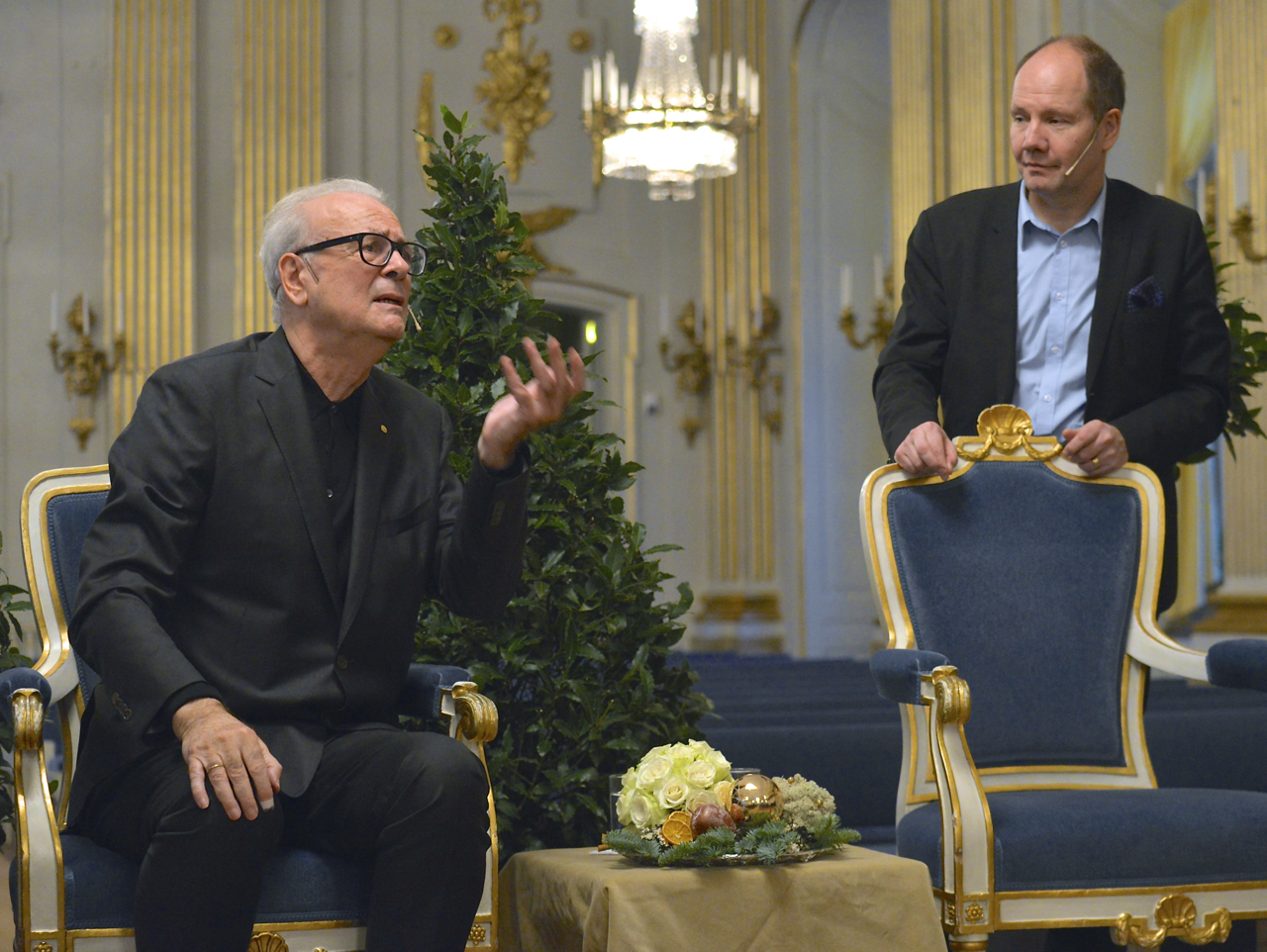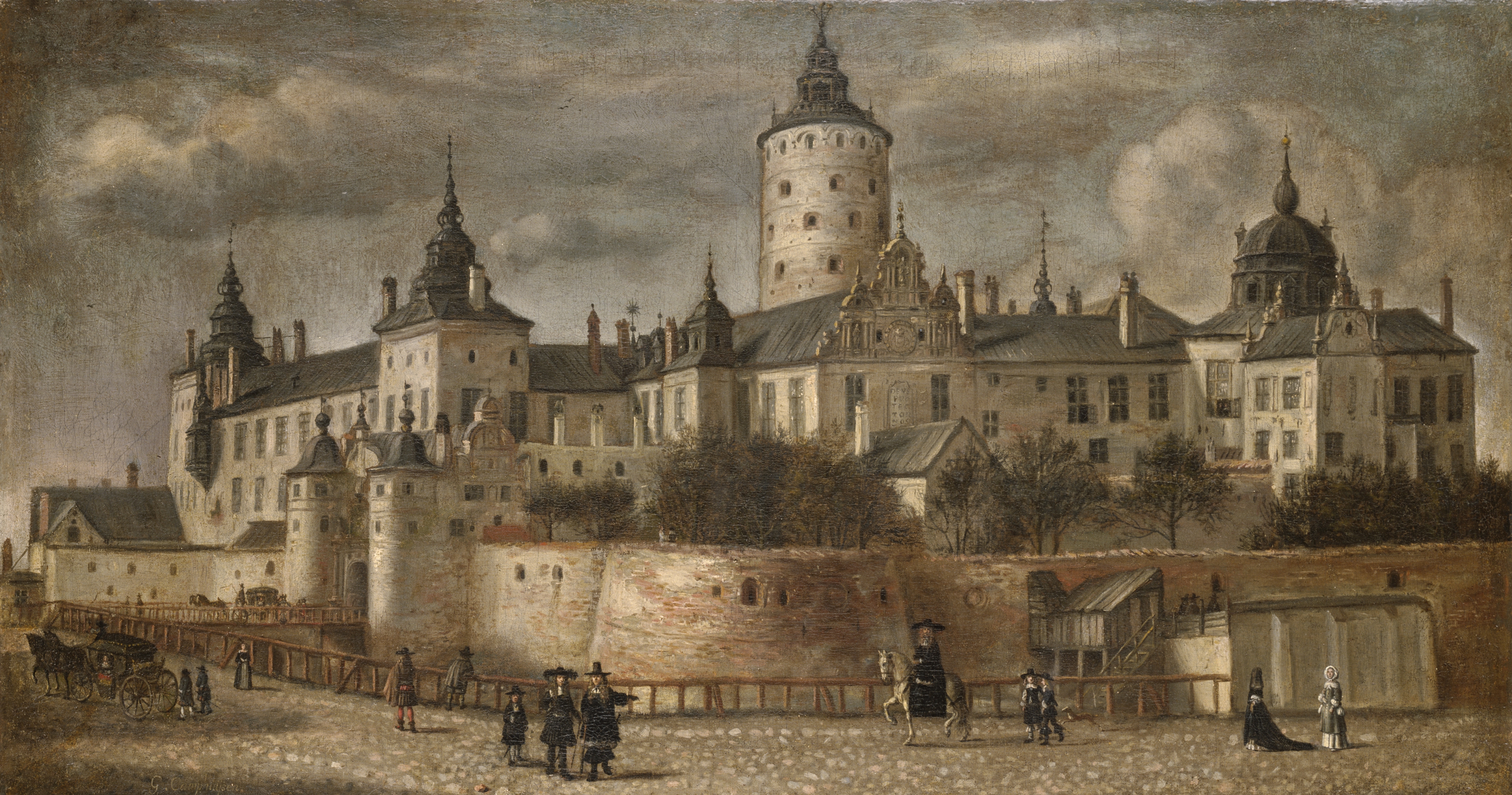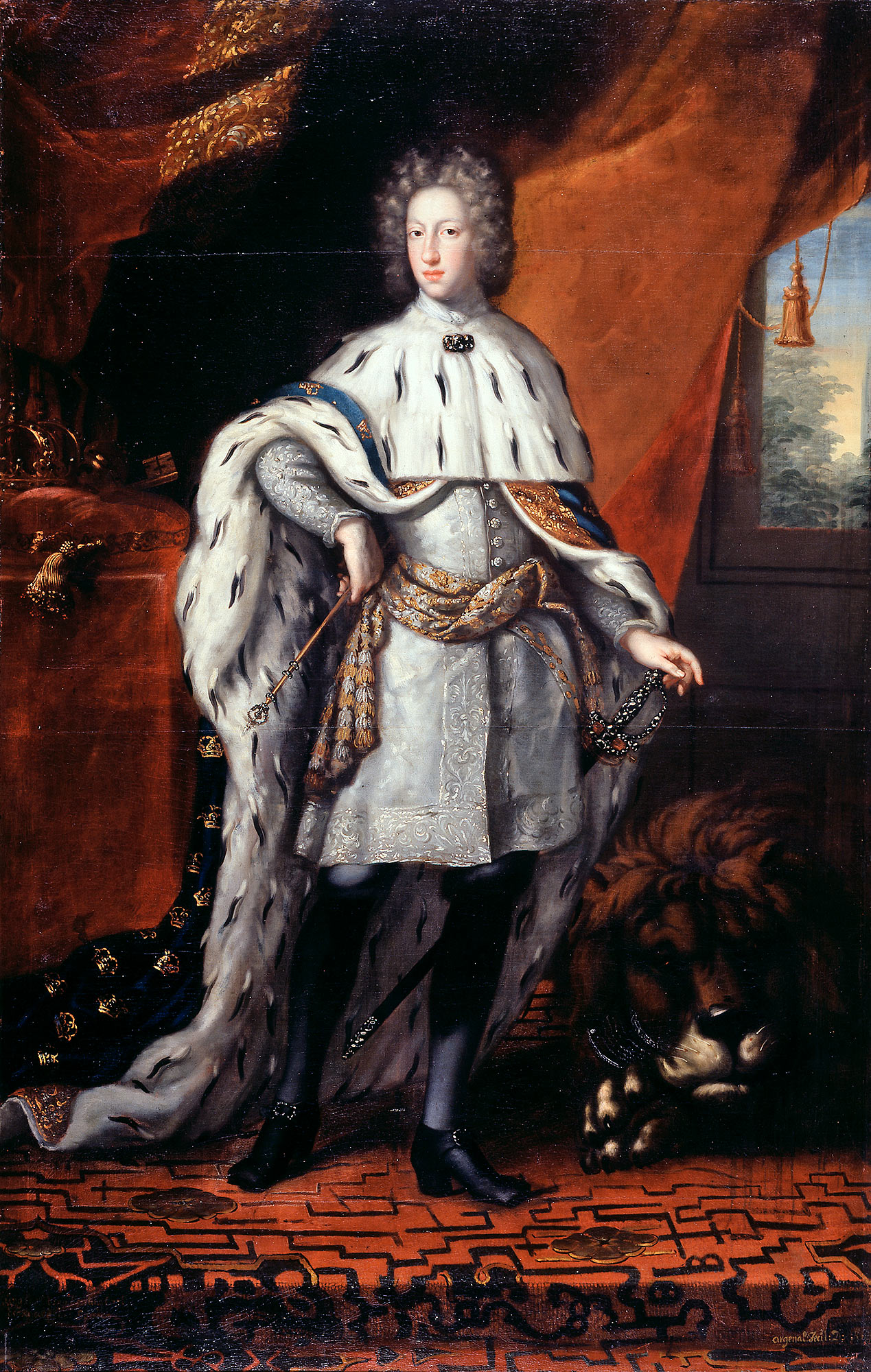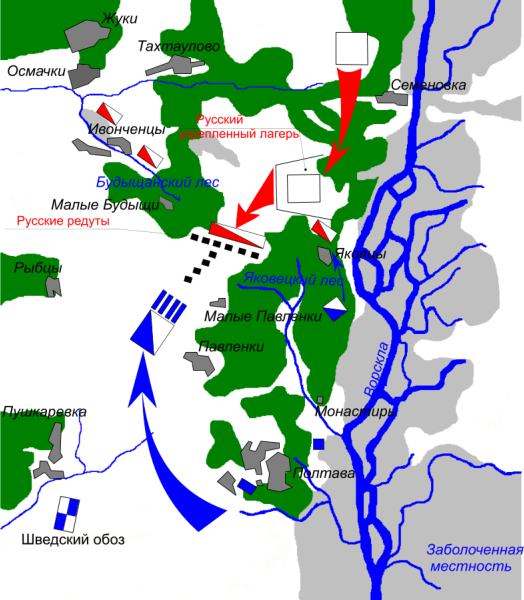|
Peter Englund
Peter Mikael Englund (born 4 April 1957) is a Swedish author and historian. Englund writes non-fiction books and essays, often about the Swedish Empire and other historical events. He writes in a very accessible style, providing narrative details usually omitted in typical books about history. His books have gained popularity and are translated into several languages, such as German and Czech. He was the permanent secretary of the Swedish Academy from 1 June 2009 to 31 May 2015, when he was succeeded by Sara Danius. In January 2019 Englund announced that he, and fellow academy member Kjell Espmark, would return as active members of the Swedish academy, where they had been inactive since April 2018. Biography Englund was born in Boden, Sweden, Boden and studied a preparatory course for the caring professions for two years and then humanistic subjects for another two years in secondary school. He was then conscripted and served 15 months in the Swedish Army at the Norrbotten Regi ... [...More Info...] [...Related Items...] OR: [Wikipedia] [Google] [Baidu] |
Boden, Sweden
Boden (, outdatedly ) is a locality and the seat of Boden Municipality in Norrbotten County, Sweden with 16,847 inhabitants in 2018. It is part of the larger area around coastal city Luleå some southeast. After Kiruna, it is the second largest town in Northern Sweden's interior. History The town of Boden started as a railway junction where the Northern Line (''Norra stambanan'', opened 1894) met with the Ore Line (''Malmbanan'') from the rich iron ore fields in northern Sweden. The town experienced increased growth when the Boden Fortress was constructed in the beginning of the 20th century. The purpose of the fortress was to defend Sweden from a possible attack from the east, where Russia was considered the most dangerous threat. The first official writings about Boden, was in a 1500~ tax paper, where the mention of "Boden village" with 7 homes. Boden got the title of city in 1919. This title became obsolete in 1971 and Boden is now the seat of Boden Municipality. Industr ... [...More Info...] [...Related Items...] OR: [Wikipedia] [Google] [Baidu] |
History
History (derived ) is the systematic study and the documentation of the human activity. The time period of event before the History of writing#Inventions of writing, invention of writing systems is considered prehistory. "History" is an umbrella term comprising past events as well as the memory, discovery, collection, organization, presentation, and interpretation of these events. Historians seek knowledge of the past using historical sources such as written documents, oral accounts, art and material artifacts, and ecological markers. History is not complete and still has debatable mysteries. History is also an Discipline (academia), academic discipline which uses narrative to describe, examine, question, and analyze past events, and investigate their patterns of cause and effect. Historians often debate which narrative best explains an event, as well as the significance of different causes and effects. Historians also debate the historiography, nature of history as an end in ... [...More Info...] [...Related Items...] OR: [Wikipedia] [Google] [Baidu] |
Christina Of Sweden
Christina ( sv, Kristina, 18 December ( New Style) 1626 – 19 April 1689), a member of the House of Vasa, was Queen of Sweden in her own right from 1632 until her abdication in 1654. She succeeded her father Gustavus Adolphus upon his death at the Battle of Lützen in 1632, but began ruling the Swedish Empire when she reached the age of eighteen in 1644. The Swedish queen is remembered as one of the most learned women of the 17th century. She was fond of books, manuscripts, paintings, and sculptures. With her interest in religion, philosophy, mathematics, and alchemy, she attracted many scientists to Stockholm, wanting the city to become the " Athens of the North". The Peace of Westphalia allowed her to establish an academy or university when and wherever she wanted. In 1644, she began issuing copper in lumps as large as fifteen kilograms to serve as currency. Christina's financial extravagance brought the state to the verge of bankruptcy, and the financial difficulties c ... [...More Info...] [...Related Items...] OR: [Wikipedia] [Google] [Baidu] |
Erik Dahlberg
'' Count Erik Jönsson Dahlbergh (10 October 162516 January 1703) was a Sweden, Swedish military engineer, Governor-general and Field marshal. He rose to the level of nobility through his military competence. As an architect and draftsman, he was renowned for fortification works. He is most known for his collection of engravings ''Suecia Antiqua et Hodierna'', a collection of engravings of topographical research. Biography Erik Dahlbergh was born in Stockholm, Sweden. His early studies involved the science of fortification. Orphaned at an early age, Dahlbergh's studies qualified him as a scribe and in 1641 he found employment in Hamburg with Gerdt Rehnskiöld (1610−1658), senior accountant for Pommern and Mecklenburg. Over a six year period, he was taught the fundamentals in draughtsmanship. While learning these skills, he also studied mathematics, architecture, perspective and map drawing. He saw service as an engineer officer during the latter years of the Thirty ... [...More Info...] [...Related Items...] OR: [Wikipedia] [Google] [Baidu] |
Thirty Years' War
The Thirty Years' War was one of the longest and most destructive conflicts in European history The history of Europe is traditionally divided into four time periods: prehistoric Europe (prior to about 800 BC), classical antiquity (800 BC to AD 500), the Middle Ages (AD 500 to AD 1500), and the modern era (since AD 1500). The first early ..., lasting from 1618 to 1648. Fought primarily in Central Europe, an estimated 4.5 to 8 million soldiers and civilians died as a result of battle, famine, and disease, while some areas of what is now modern Germany experienced population declines of over 50%. Related conflicts include the Eighty Years' War, the War of the Mantuan Succession, the Franco-Spanish War (1635–1659), Franco-Spanish War, and the Portuguese Restoration War. Until the 20th century, historians generally viewed it as a continuation of the religious struggle initiated by the 16th-century Reformation within the Holy Roman Empire. The 1555 Peace of Augsburg atte ... [...More Info...] [...Related Items...] OR: [Wikipedia] [Google] [Baidu] |
Dagens Nyheter
''Dagens Nyheter'' (, ), abbreviated ''DN'', is a daily newspaper in Sweden. It is published in Stockholm and aspires to full national and international coverage, and is widely considered Sweden's newspaper of record. History and profile ''Dagens Nyheter'' was founded by Rudolf Wall in December 1864. The first issue was published on 23 December 1864. During its initial period the paper was published in the morning. In 1874 the paper became a joint stock company. Its circulation in 1880 was 15,000 copies. In the 1890s, Wall left ''Dagens Nyheter'' and soon after, the paper became the organ of the Liberal Party. From 1946 to 1959, Herbert Tingsten was the executive editor. The newspaper is owned by the Bonnier Group since 1909, when Karl Otto Bonnier acquired the remaining shares that his family had not owned (his father Albert had already acquired some shares since 1888). [...More Info...] [...Related Items...] OR: [Wikipedia] [Google] [Baidu] |
Klas Östergren
Klas Östergren (born 20 February 1955) is a Swedish novelist, short story writer, screenwriter, and translator. Östergren had a breakthrough with his fourth novel ''Gentlemen'' in 1980. He has been awarded numerous Swedish literary prizes, such as Doblougska priset in 1998 and the grand prize by the literary society, Samfundet De Nio in 2005, as well as being nominated for the Guldbagge Award for Best Screenplay in 1999. His works have been translated to more than ten languages. In 2014 he was elected a member of the Swedish Academy, but resigned from his seat in 2018. Biography Östergren was born in 1955 on Lilla Essingen in Stockholm. He was the youngest of four siblings. His father was Finnish and his mother was Swedish. He went to secondary school at Södra Latins gymnasium. Klas Östergren was soon to turn twenty years old when his first novel, ''Attila'', was published in 1975. He gained critical acclaim and high readership five years later with the novel, ''Gentl ... [...More Info...] [...Related Items...] OR: [Wikipedia] [Google] [Baidu] |
Sveriges Television
Sveriges Television AB ("Sweden's Television Stock Company"), shortened to SVT (), is the Sweden, Swedish national public broadcasting, public television broadcaster, funded by a public service tax on personal income set by the Riksdag (national parliament). Prior to 2019, SVT was funded by a television licence fee payable by all owners of television sets. The Swedish public broadcasting system is largely modelled after the system used in the United Kingdom, and Sveriges Television shares many traits with its British counterpart, the BBC. SVT is a public limited company that can be described as a quasi-autonomous non-government organisation. Together with the other two public broadcasters, Sveriges Radio and Sveriges Utbildningsradio, it is owned by an independent foundation, ''Foundation Management for SR, SVT, and UR, Förvaltningsstiftelsen för Sveriges Radio AB, Sveriges Television AB och Sveriges Utbildningsradio AB''. The foundation's board consists of 13 politicians, repr ... [...More Info...] [...Related Items...] OR: [Wikipedia] [Google] [Baidu] |
Eurocentrism
Eurocentrism (also Eurocentricity or Western-centrism) is a worldview that is centered on Western civilization or a biased view that favors it over non-Western civilizations. The exact scope of Eurocentrism varies from the entire Western world to just the continent of Europe or even more narrowly, to Western Europe (especially during the Cold War). When the term is applied historically, it may be used in reference to an apologetic stance toward European colonialism and other forms of imperialism. The term "Eurocentrism" dates back to the late 1970s but it did not become prevalent until the 1990s, when it was frequently applied in the context of decolonisation and development and humanitarian aid that industrialised countries offered to developing countries. The term has since been used to critique Western narratives of progress, Western scholars who have downplayed and ignored non-Western contributions, and to contrast Western epistemologies with Indigenous ways of knowing. ... [...More Info...] [...Related Items...] OR: [Wikipedia] [Google] [Baidu] |
Peter I Of Russia
Peter I ( – ), most commonly known as Peter the Great,) or Pyotr Alekséyevich ( rus, Пётр Алексе́евич, p=ˈpʲɵtr ɐlʲɪˈksʲejɪvʲɪtɕ, , group=pron was a Russian monarch who ruled the Tsardom of Russia from to 1721 and subsequently the Russian Empire until his death in 1725, jointly ruling with his elder half-brother, Ivan V until 1696. He is primarily credited with the modernisation of the country, transforming it into a European power. Through a number of successful wars, he captured ports at Azov and the Baltic Sea, laying the groundwork for the Imperial Russian Navy, ending uncontested Swedish supremacy in the Baltic and beginning the Tsardom's expansion into a much larger empire that became a major European power. He led a cultural revolution that replaced some of the traditionalist and medieval social and political systems with ones that were modern, scientific, Westernised and based on the Enlightenment. Peter's reforms had a lastin ... [...More Info...] [...Related Items...] OR: [Wikipedia] [Google] [Baidu] |
Charles XII Of Sweden
Charles XII, sometimes Carl XII ( sv, Karl XII) or Carolus Rex (17 June 1682 – 30 November 1718 O.S.), was King of Sweden (including current Finland) from 1697 to 1718. He belonged to the House of Palatinate-Zweibrücken, a branch line of the House of Wittelsbach. Charles was the only surviving son of Charles XI and Ulrika Eleonora the Elder. He assumed power, after a seven-month caretaker government, at the age of fifteen. In 1700, a triple alliance of Denmark–Norway, Saxony– Poland–Lithuania and Russia launched a threefold attack on the Swedish protectorate of Holstein-Gottorp and provinces of Livonia and Ingria, aiming to draw advantage as the Swedish Empire was unaligned and ruled by a young and inexperienced king, thus initiating the Great Northern War. Leading the Swedish army against the alliance, Charles won multiple victories despite being usually significantly outnumbered. A major victory over a Russian army some three times the size in 1700, at the Ba ... [...More Info...] [...Related Items...] OR: [Wikipedia] [Google] [Baidu] |
Battle Of Poltava
The Battle of Poltava; russian: Полта́вская би́тва; uk, Полта́вська би́тва (8 July 1709) was the decisive and largest battle of the Great Northern War. A Russian army under the command of Tsar Peter I defeated a Swedish army, under the command of Carl Gustaf Rehnskiöld. The battle put an end to the status of the Swedish Empire as a European great power, as well as its eastbound expansion, and marked the beginning of Russian hegemony in Northern Europe. During the course of six years in the initial stages of the war, King Charles XII and the Swedish Empire had defeated almost all participants in the anti-Swedish coalition, which initially consisted of the Polish-Lithuanian Commonwealth, Denmark-Norway and the Tsardom of Russia. The latter under Tsar Peter I's rule was the only one still undefeated. Charles XII therefore chose to invade Russia in the autumn of 1707 and march towards Moscow with a large Swedish army. However, the campaign w ... [...More Info...] [...Related Items...] OR: [Wikipedia] [Google] [Baidu] |

.jpg)







